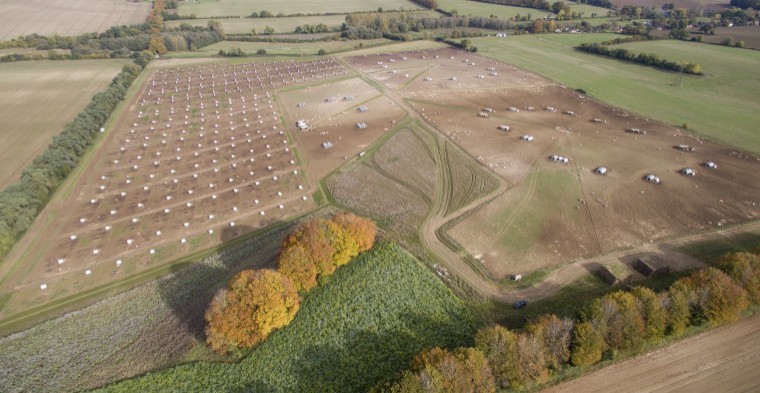Brexit and the restructuring of UK agriculture Is a good chance for farmers and their advisers to have a rethink about chemicals.
The opportunity to start with a blank sheet of paper should not be missed said Hants farmer Robert Shepherd, a partner in Allenford Farms, Hampshire.
This could be linked with DEFRA secretary Michael Goves’s plans to pay farmers for providing public goods. “Re evaluating our approach to pesticides could be a tick in that public goods box.”
Pesticides are, of course, a big input for the farm. “I think pesticides are far too expensive for starters. It is all part of my conspiracy theory that there are big supply businesses out there which know in great detail the gross margins of British farmers and they charge for their products accordingly. It sounds paranoid but if I was them that’s what I’d be doing.”
In the last 15 years, the cost of pesticides per hectare at Allenford Farms has trebled. “In return for this, what are we gaining by way of increased output? Well, I would say a marginal increase at best.” All the big increases in yield happened 20 years ago.
“We are constantly being told to grow new varieties of wheat. But a new variety hardly lasts three years now before it breaks down with disease.” Most of the data about new varieties is based on improvement in yield but that isn’t happening.
“It seems we are on a treadmill and there hasn’t been a trialogue between agronomists, the farmer and the conservation agencies. We need to ask what result we want from all this growing. Some farmers will say “I want the biggest yield I can get.” Fair enough – that’s their prerogative. There are other farmers who want to do things for the environment and are scarcely aware – myself included – of the effects these pesticides are having. I am not a chemist and I don’t have the knowledge of my agronomist.
“It’s our fault as farmers because we haven’t included these people in the loop. We have direct dialogue with conservation agencies but we haven’t thought to ask the agronomists to sit round the table. The agronomist may say “I’m glad you’ve asked because I’ve always felt a bit worried about putting some of these chemicals on. I’ve always assumed all you wanted was yield.”
Currently, says Mr Shepherd, the overwhelming consensus on the future of conservation is “higher level stewardship PLUS. That means taking the skeleton of our existing schemes and just trying to put more meat on the bones along the same lines of the last 30 years when we have been part of the European Union.” In that time and using these initiatives we have presided over a massive decline in farmland species.
Should we be trying to emulate what has been happening in conservation for the last 30 years? “Surely this needs a root and branch review and what better time than now?”




